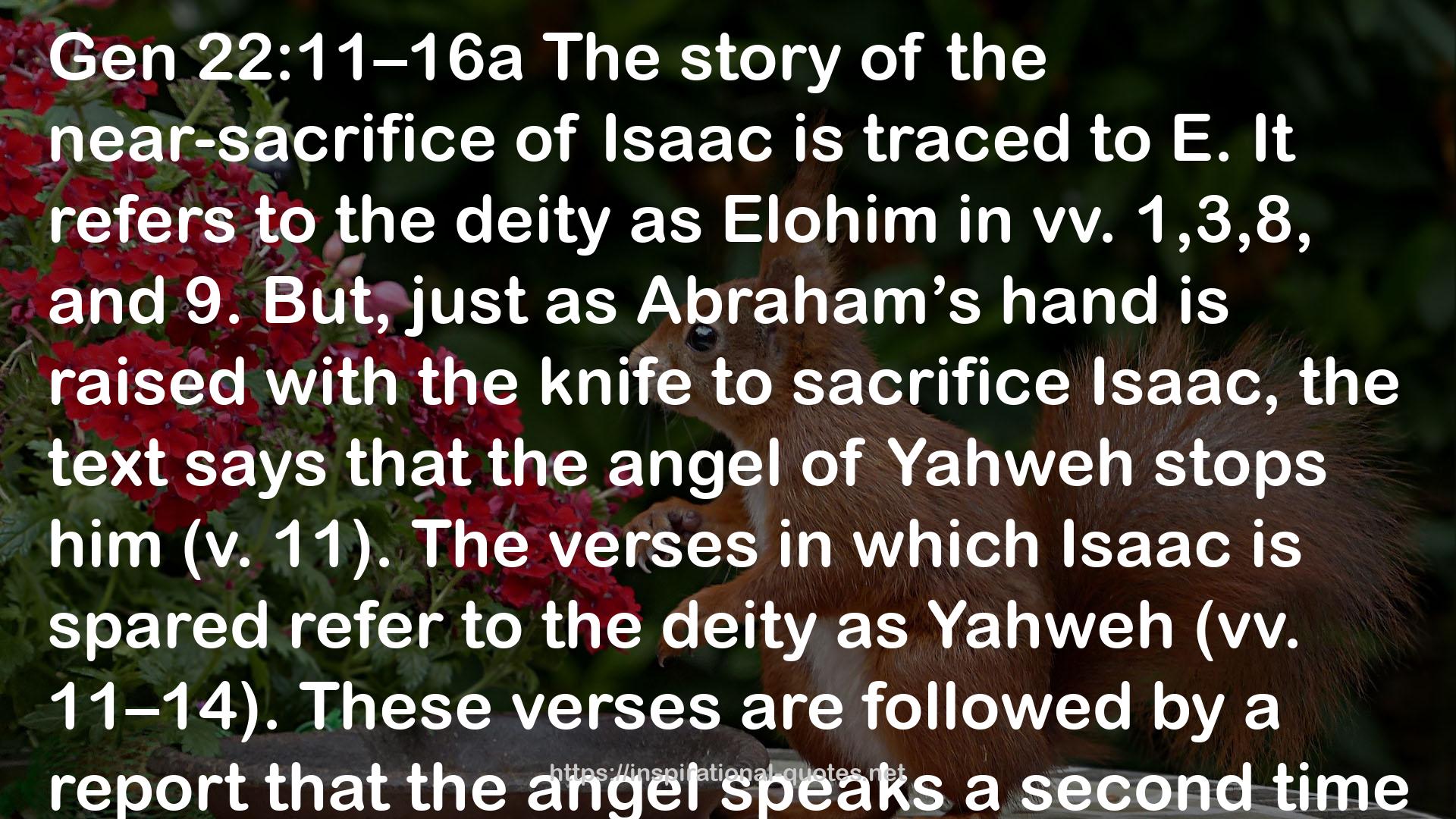" Gen 22:11–16a The story of the near-sacrifice of Isaac is traced to E. It refers to the deity as Elohim in vv. 1,3,8, and 9. But, just as Abraham’s hand is raised with the knife to sacrifice Isaac, the text says that the angel of Yahweh stops him (v. 11). The verses in which Isaac is spared refer to the deity as Yahweh (vv. 11–14). These verses are followed by a report that the angel speaks a second time and says, “… because you did not withhold your son from me….” Thus the four verses which report that Isaac was not sacrificed involve both a contradiction and a change of the name of the deity. As extraordinary as it may seem, it has been suggested that in the original version of this story Isaac was actually sacrificed, and that the intervening four verses were added subsequently, when the notion of human sacrifice was rejected (perhaps by the person who combined J and E). Of course, the words “you did not withhold your son” might mean only that Abraham had been willing to sacrifice his son. But still it must be noted that the text concludes (v. 19), “And Abraham returned to his servants.” Isaac is not mentioned. Moreover, Isaac never again appears as a character in E. Interestingly, a later midrashic tradition developed this notion, that Isaac actually had been sacrificed. This tradition is discussed in S. Spiegel’s The Last Trial (New York: Schocken, 1969; Hebrew edition 1950). "
― Richard Elliott Friedman , Who Wrote the Bible?
